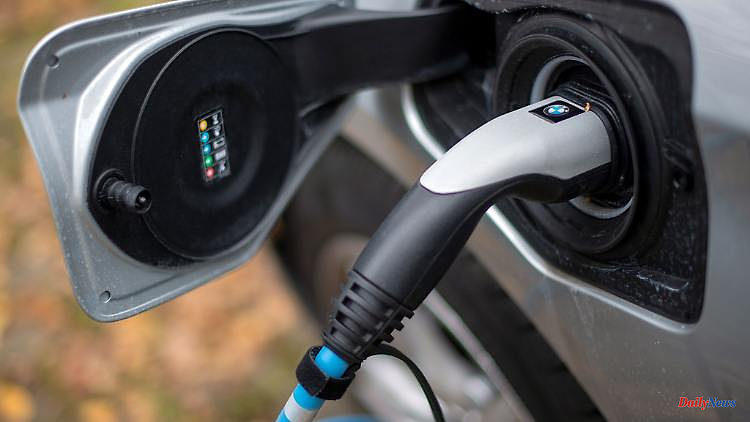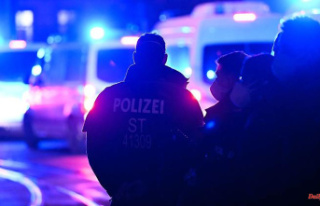Reduced oil supplies from Russia and the associated debate about a more rapid departure from fossil fuels are increasingly influencing the purchase of new cars. Also in Mecklenburg-Western Pomerania, where electric cars are slowly gaining momentum.
Schwerin (dpa/mv) - In view of the high fuel prices and state purchase premiums, drivers in the state of Mecklenburg-Western Pomerania are increasingly opting for electric cars. As can be seen from the latest data from the Federal Motor Transport Authority in Flensburg, in the first half of 2022 around ten percent of the passenger cars newly registered in the north-east were purely electric cars. If you add the 1,000 plug-in hybrid vehicles sold to the 1,300 electric cars, the share is 17 percent. The federal government subsidizes the purchase of electric cars, depending on the price, with up to 6,000 euros, but will noticeably reduce the purchase premium from 2023 and stop it altogether for hybrid vehicles.
Despite the high proportion of new e-cars compared to previous years, Mecklenburg-Western Pomerania is lagging behind the growth in most other federal states. In neighboring Schleswig-Holstein, for example, 29 percent of newly registered cars had an electric drive in the first half of the year. According to the Federal Motor Transport Authority, there were around 310,000 vehicles nationwide and thus 25 percent of new cars.
Germany is still a long way from the goal set by the federal government that around 15 million electric cars should be in use nationwide by 2030. Around 1.5 million of the 48.5 million passenger cars are currently electric. The proportion is thus around 3 percent, in Mecklenburg-Western Pomerania, at 1.5 percent, only half as high.
As can be seen from the state government's response to a small question from the CDU parliamentary group in the state parliament, there are "no targets for electric vehicles" for Mecklenburg-Western Pomerania. In order to achieve climate neutrality in the north-east, it is essential that greenhouse gas emissions in the transport sector are reduced. However, this can be achieved through a variety of different measures: These include "the use of bicycles and public transport, traffic avoidance, for example by working from home, video conferences and so on, as well as by switching vehicles to alternative drives and, if necessary, fuels," says the reply .
The state government also points out that there are currently 123 fast charging points at 60 different locations and a total of 675 charging points at 328 locations. However, a drastic increase in the charging current requirement is expected, for 2026 with 6.5 gigawatt hours and for 2030 with 638 gigawatt hours. In a study by the state-owned KfW bank, 56.6 percent of households in Mecklenburg-Western Pomerania indicated a lack of charging infrastructure as an obstacle to buying an electric car.
Another obstacle to buying is the currently often long delivery times, which can be longer than a year depending on the model. From the point of view of industry experts, material bottlenecks, which have been burdening the entire industry for months, are making themselves felt. Above all, the lack of electronic components is slowing down production in the entire automotive industry. With 1.24 million new vehicles, the number of sales nationwide in the first half of 2022 was around a third lower than in the same period of the pre-Corona year 2019, when 1.85 million new cars came onto the roads. In Mecklenburg-Western Pomerania, 13,500 new cars were sold in the first half of the year, and 20,000 from January to June 2019.












